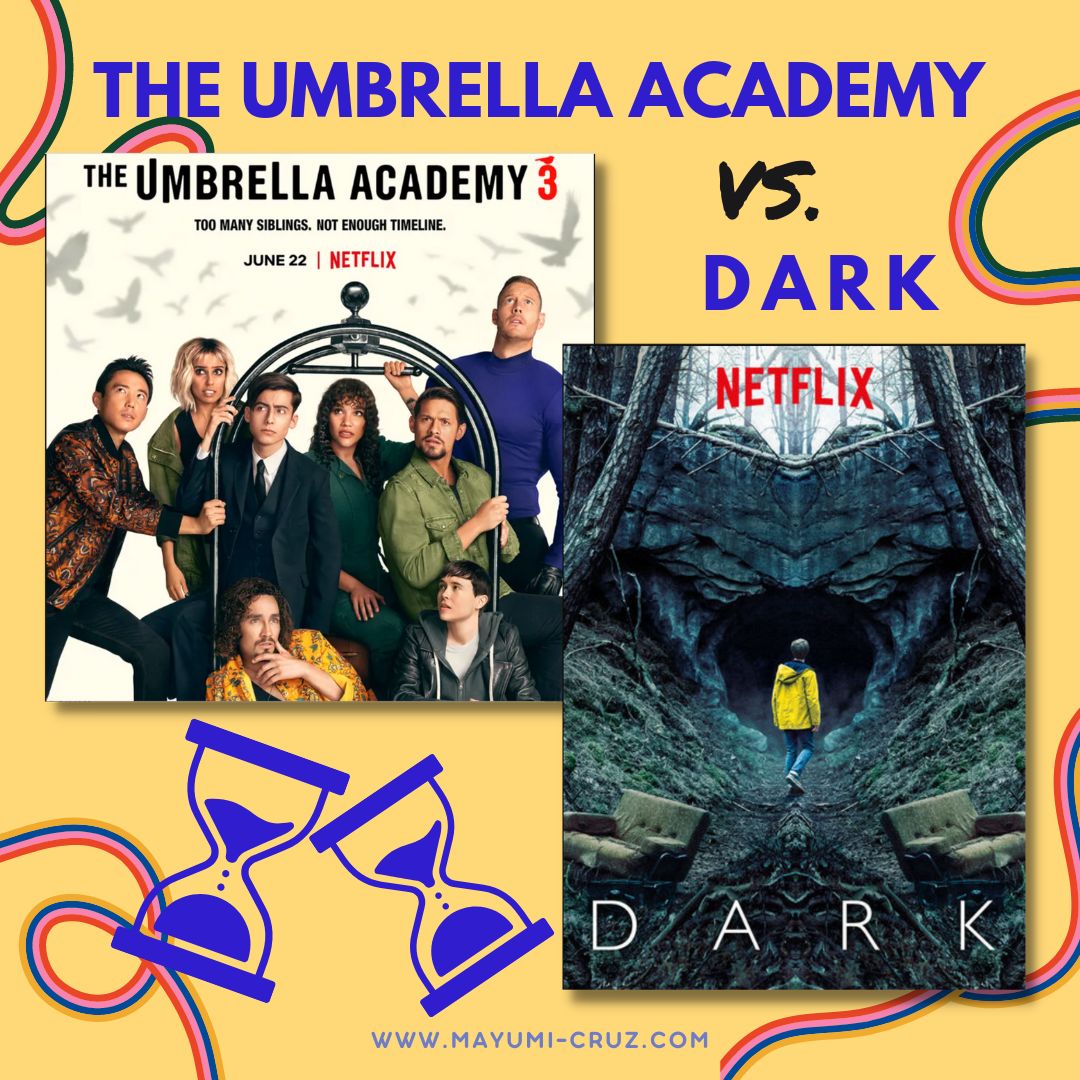THE UMBRELLA ACADEMY VS. DARK
It all boils down to coherence and cohesion.
Both these two Netflix series are popular to many viewers and it’s not a wonder why. Both have a complex, mind-bending story. Both depict sci-fi time travel with elements of family/relationships drama and mystery. These two series also have magnificent, out of this world special effects. The actors are all equally deserving of high praise.
But I find The Umbrella Academy more compelling, resonating, and infinitely more satisfying than Dark.
Please don’t get me wrong. The problem for me with Dark is not its story. Dark’s story is truly one of a kind, hailed as unique in its fresh take on the time travel paradox, and praised as a masterpiece.
But for a story that has an apocalypse for conflict and resetting the time/universe for resolution, Dark fell short of expectations with its over-the-top complications.
I could blame it on the dubbing. Dark is a German production dubbed in English with English subtitles. The out-of-sync voice-to-acting expressions and inconsistent translations are truly off-putting at times.
It could be the pace. Dark is somewhat dragging and slow-paced, especially in Season 1, punctuated with gloomy musical scoring. The Umbrella Academy is fast-paced, hyped with upbeat music.
It could be the lack of humor. Dark is straight out drama and has more tragic moments than light ones. The Umbrella Academy even has dance and song sequences! Truly entertaining.
It could be the characters. Dark depicts ordinary people in a town. The Umbrella Academy have superheroes with extraordinary powers and a somewhat villainy alien father.
But more than all these, I think it’s their plots that made all the difference.
I repeat: The problem for me with Dark is not its story. It’s how the story unfolded—or, in one word, the plot.
Writers like me know that a story is different from the plot. A story is a comprehensive narrative containing the plot or subplots, settings, themes, character development and other elements.
Within the story, there is the plot. It’s how the events and actions are structured or sequenced from start to finish. It explains and describes not just what happened, but how one event led to another. The plot is a series of causes and effects which shapes the story as a whole.
It isn’t enough, then, for a multi-character, multi-subplot, sci fi time travel story to be mind-bending.
It also has to be coherent and cohesive.
A coherent plot is well-ordered, logically clear, and sensible. All its parts are cohesive, or in other words, go well with each other. Every detail has a point, a meaning, and it connects with the whole.
In short, everything that happened in the story has to make sense.
Alas, I feel that Dark’s plot was done just for the sake of, well, being mind-boggling.
There are so many plot holes like, what’s the relevance of Jonas and Martha having a child; of adding more timelines to the original three timelines only to be brought to the same pointless conclusion; how Claudia found out about the origin world, and more. And the series has ended, so how do we get answers?
The Umbrella Academy also repeatedly tackled the “stop the apocalypse” premise, but each season offered a newer, more challenging twist to it. The development of its characters was smoothly and well done, too. Sibling rivalry and daddy issues were given satisfying redemption arcs, notably Reginald Hargreeves who turned out to be a father who only wanted the best for his children despite all the bad things he did to them.
In a way, The Umbrella Academy reminded me of the Sherlock Holmes Series. Equally mind-bending, intellectually brilliant, but full of humor and emotional drama with a satisfying ending.
Dark ended with a lot of questions left unanswered. While The Umbrella Academy admittedly has mysteries that haven’t been solved, it isn’t finished yet. There are rumors of another season in the making, and I am looking forward to it.
APPLE PRODUCTS YOU’LL LOVE




